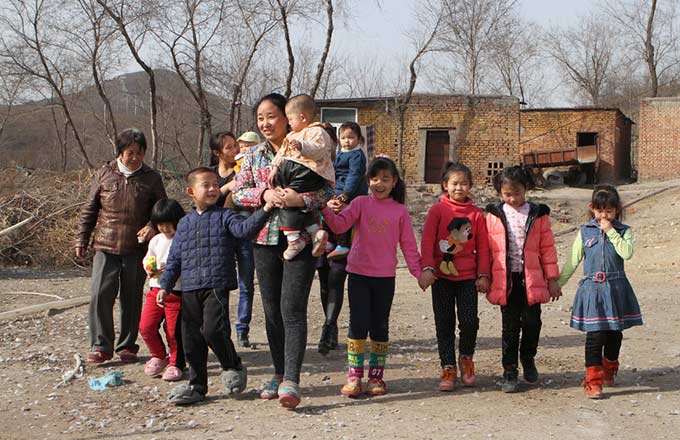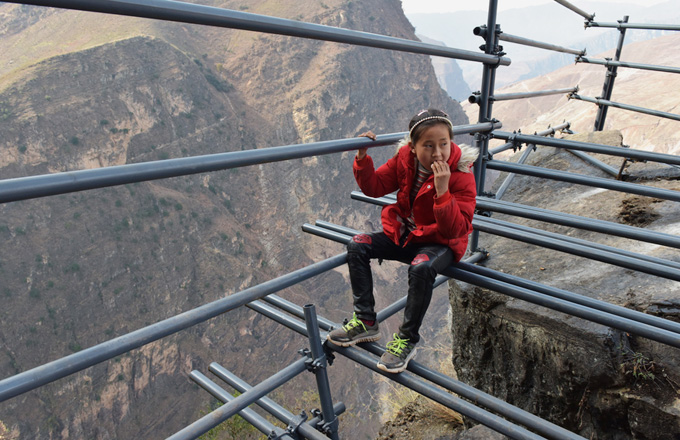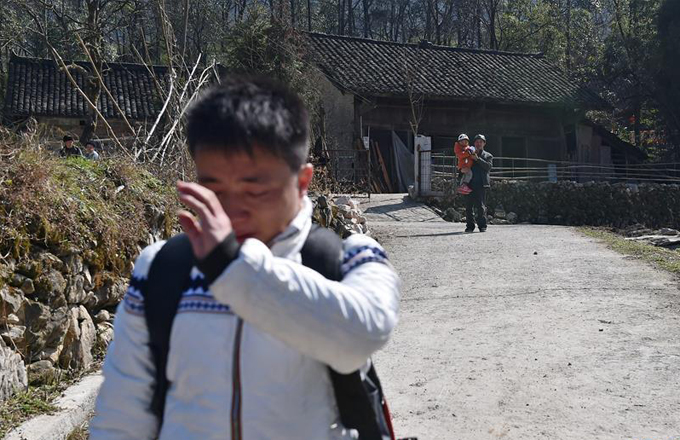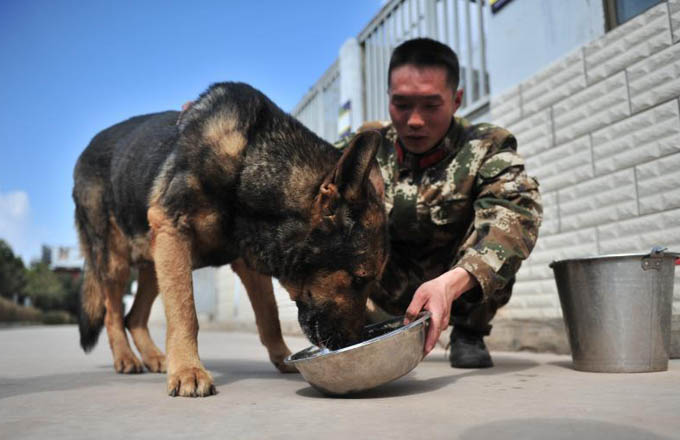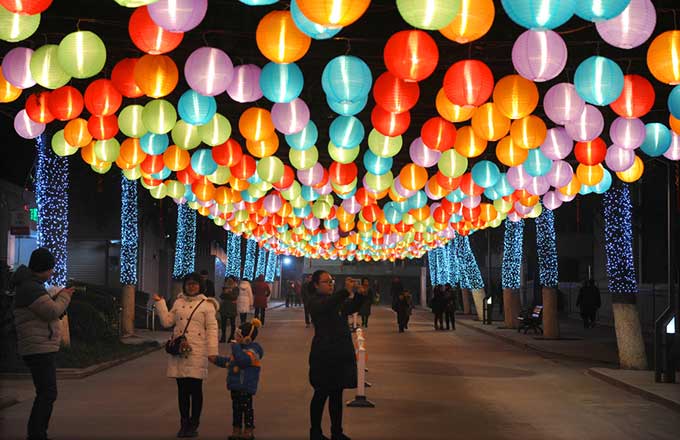17 bodies recovered in Tibet landslide
LHASA - Seventeen more bodies were retrieved on Sunday at the site of a mining area landslide in Southwest China's Tibet autonomous egion.
As of 9:15 pm, a total of 17 bodies have been recovered since the landslide occurred two and a half days ago in Maizhokunggar County, about 68 km from regional capital Lhasa. Another 66 miners remain missing.
In two locations near the area where the new bodies were found, rescuers retrieved articles such as tents, clothes and kitchen knives, according to rescuers.
That has led them to believe more miners might be buried under debris at these two locations.
The disaster struck a workers' camp of the Jiama Copper Polymetallic Mine at about 6 a.m. on Friday, burying 83 workers and 11 pieces of machinery from Tibet Huatailong Mining Development Co. Ltd. The company is a subsidiary of China National Gold Group Corporation, the country's largest gold producer.
The identities of the miners have been confirmed and their relatives are also on their way to Lhasa. The majority of the victims were from geological institutes or mining companies from northwestern Gansu Province, southwestern Guizhou Province and Lhasa.
"Large swathes of rocks suddenly fell down from the mountaintop and the huge sound could be heard in the whole valley. It was a terrible scene," remembered a villager living nearby.
Zhao Linjiang is the camp's only survivor of the disaster.
He went down the mountain to buy tents on Wednesday, and was shocked to find, when he returned on Friday morning, that the camp had totally gone, burying his younger brother Zhao Malin and other miners.
"I was numbed by the scene, and trudged back and forth, crying all along," Zhao told Xinhua in Lhasa on Sunday.
"It's so cosy here, but my brother is so cold up there on the mountain," he said, wiping tears off his face.
Zhao said he must wait to see his brother, or even his body, before he returns home to be with his family.
"I won't return to this place any more," he added.
Chinese President Xi Jinping and Premier Li Keqiang on Friday ordered exhaustive efforts to rescue the buried workers
On Saturday, rescuers managed to recover two bodies in the same area, as the huge amount of debris, 4,600-meter altitude and snowy weather hampered rescue efforts.
Xinhua reporters saw at the scene on Sunday that more heavy-duty excavating devices were being transported to the site, where at least 50 excavating machines were working on the debris. Roads near the landslide site have been widened to facilitate the shipping of the equipment.
Despite suffering from altitude sickness, soldiers and armed policemen have been racing against time to sift through the debris in the hope of finding buried miners.
They have been digging in shifts, while the machines ran day and night without any stop.
"I have barely had any sleep since I came here," armed policeman Lu Wenkai told Xinhua.
"Apart from eating and sleep, I have been working all the time since I arrived here on early yesterday morning," said another soldier, who did not give his name.
"I am tormented with a headache but I have to continue my work, " he added.
"We have no plan to stop the rescue operation. Instead, we have sped up our rescue efforts with more devices," said Xiang Mingqing, another armed police officer at the scene.
Disease control and prevention workers have disinfected the area, and a checkout showed that air conditions at the site remained normal.
"There are cracks on the mountaintop and secondary disasters are possible," said Jiang Yi, an armed police officer who joined the rescue efforts at the scene.
A special team of experts has been formed to monitor the mountain around the clock and three walls built at the landslide site to guard against secondary disasters.
"We have treated rescuers who suffered altitude sickness or a fever due to the snowy weather," according to Li Suzhi, president of the General Hospital of Tibetan Military Area Command. Li, leading a team of more than 40 members, arrived at the site on Saturday afternoon.
Local villagers have also tried to send hot food to the rescuers.
Some 3,500 rescuers, 300 large-scale pieces of machinery, 10 sniffer dogs and 20 life detectors, have been mobilized at the site, according to the rescue headquarters.
"No life signs have been detected after the search via life detectors,snigger dogs and other technological means," said Li Yuelin, a rescue expert from northwestern Gansu Province.
Around 2 million cubic meters of rock and earth was set loose by the landslide, with the material taking up a length of more than three km and a depth ranging from 20 meters to 50 meters, according to Li.
Wang Zenghua, a senior leader of Tibet Autonomous Region's firefighting authorities, said the difficulties in the rescue operation were unprecedented in his 25 years of work in the region.
"The large volume of rock and mud displaced miners' tents, making it impossible to locate the missing," he said. "Completing the excavation and removal of debris is also unlikely in a short time given its depth."
As of 6 pm on Sunday, around 1.05 million cubic meters of debris had been combed.
"We will carry out an in-depth investigation into the exact cause of the landslide," promised Yang Dongliang, head of the State Administration of Work Safety, who arrived at the landslide site on Saturday.
Yang said the probe had begun and the final results will be made public. Experts with the Ministry of Land and Resources and the regional government have arrived at the scene.
"As long as there is a glimmer of hope, we will never give up our rescue efforts," said Yang.
Related stories:
All-out rescue for buried miners in Tibet
Hopes fading for mine landslide victims in Tibet
Body found after Tibet landslide buries 83
Troops, police assist Tibet landslide rescue
Emergency response to Tibet landslide
No survivors, bodies found after Tibet landslide
Chinese leaders urge trapped workers rescue
83 buried in Tibet mine area landslide




